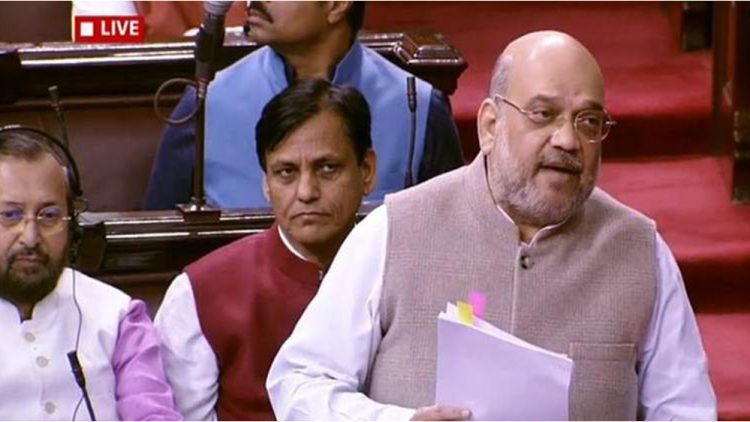New Delhi: Parliament passed the Citizenship (Amendment) Bill 2019, with Rajya Sabha passing it on Wednesday. Lok Sabha passed the Bill on 9th December.
While introducing the Bill in Rajya Sabha, Union Minister for Home Affairs, Amit Shah said that the Citizenship (Amendment) Bill 2019, will give a new ray of hope to persons belonging to Hindu, Sikh, Buddhist, Jain, Parsi and Christian communities who have migrated to India after facing persecution on the ground of religion in Pakistan, Afghanistan and Bangladesh.
Shah reiterated that the Bill is not against any Minority in India and the rights of each Indian Citizen will be equally protected. He said that Narendra Modi government is committed to protect rights of each citizen of the country. The only religion that Modi government follows is the Constitution of India.
Shah added, “We are not here only to run the government but to solve the genuine problems of the common man”.
Shah said that the Bill is aimed at giving a dignified life to these people who had suffered religious persecution for decades by granting Indian Citizenship to them, if they fulfil conditions for grant of citizenship. The Home Minister said that grant of citizenship will be from the date and year of the entry into India and all the cases and legal proceedings against them would be closed, besides protecting their business and trade interests on an equal footing. Even if the passports and visas of these minorities had expired, they would not be treated as illegal.
Responding to the questions on why only three countries were considered and why Muslims were not included in this bill, Shah said that at different points of time in the past, citizenship had been given to refugees coming from countries like Uganda, Sri Lanka. Then, refugees coming from Pakistan, Bangladesh and Afghanistan were not considered. He stated that the process of awarding citizenship to refugees has been undertaken by different governments in the past on case to case basis from time to time, on reasonable qualifications to Article 14. This time the case of refugees fleeing religious persecution from these three countries has been considered through this Bill, which is not unconstitutional.
He also informed that more than 560 Muslims from these three countries have been granted citizenship in the last 5 years. Further, he added that the previous UPA government granted citizenship to 13000 Hindus and Sikhs only but Modi government is giving citizenship rights to 6 persecuted minorities, including Hindus and Sikhs.
Shah affirmed that here is no political agenda behind this bill, as the government is only concentrating on ending the sufferings of lakhs of persecuted refugees fleeing these three countries. The government had brought this bill in 2015 also but could not get it passed. Hence, it is clear the bill has never been brought by the government with any intention of gaining political mileage in an upcoming election. Neither is the definition of secularism narrow, the Modi Government sees this issue holistically. All the minority communities being persecuted on religious lines in these countries have been included. Muslims are not included as they do not face religious persecution in these Islamic countries.
The Home Minister reiterated that Indian citizens of Muslim community do not need to fear anything, as this bill would not affect their citizenship in any way. He requested the opposition not to do politics on this issue and divide people on communal lines. “This Bill aims at granting rather than taking away someone’s citizenship”, he stressed.













